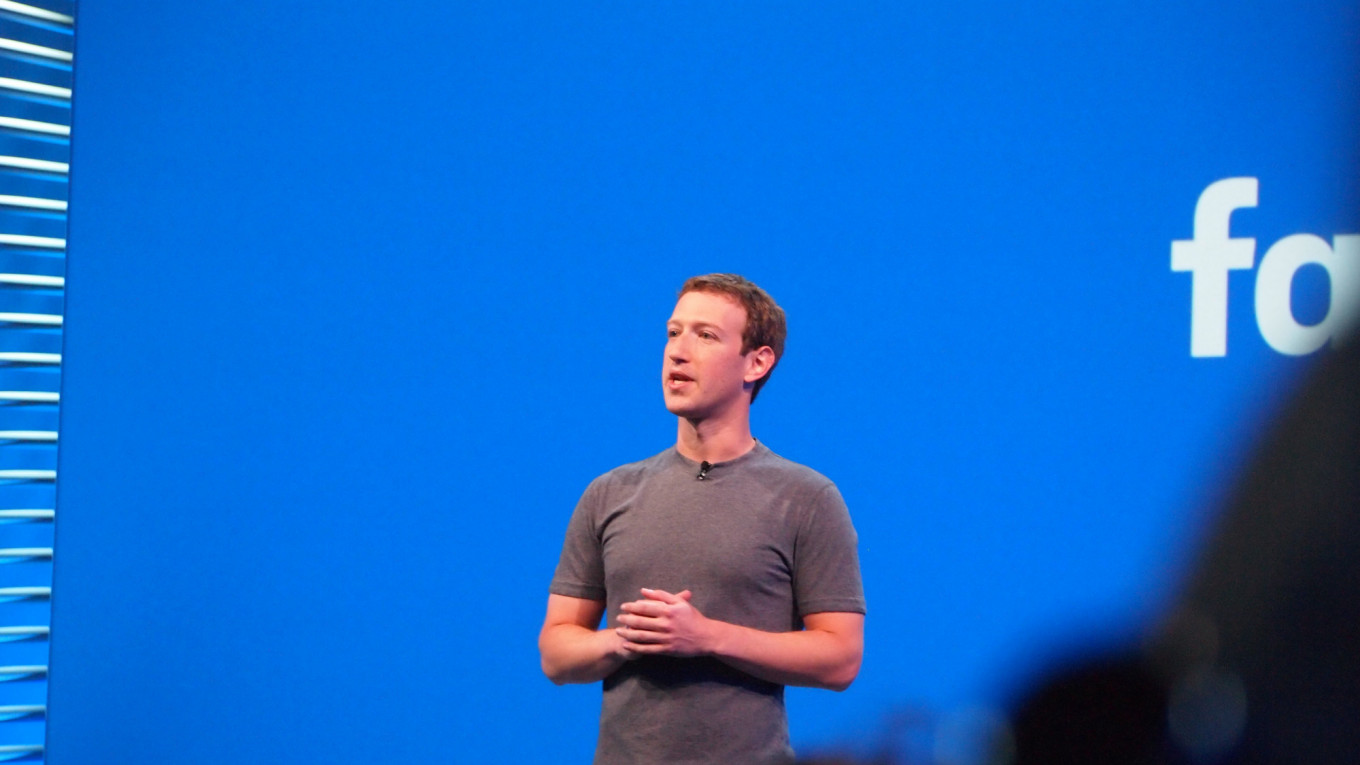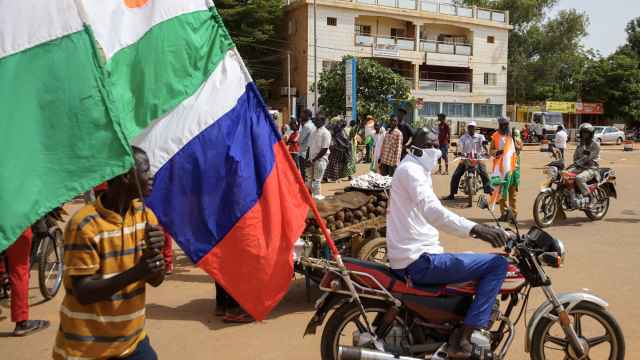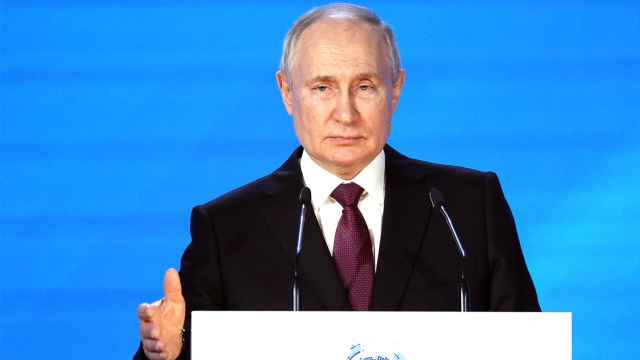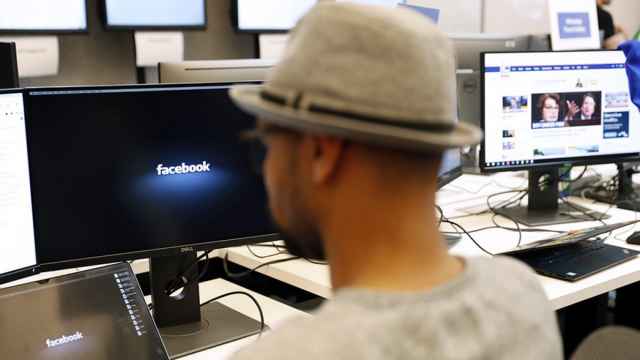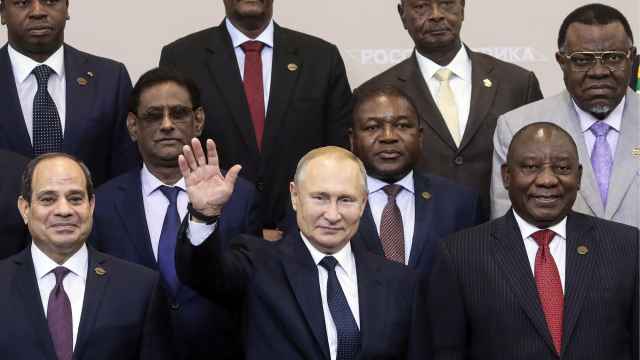Facebook said on Wednesday it had suspended three networks of Russian accounts that attempted to interfere in the domestic politics of eight African countries, and were tied to a Russian businessman accused of meddling in past U.S. elections.
The campaigns targeted people in Madagascar, Central African Republic, Mozambique, Democratic Republic of Congo, Cote d'Ivoire, Cameroon, Sudan and Libya, Facebook said. They used almost 200 fake and compromised accounts to reach more than 1 million followers in the eight African countries.
All the networks were connected to "entities associated with Russian financier Yevgeniy Prigozhin," Facebook said. Prigozhin has previously denied wrongdoing. His lawyers did not immediately respond to a request for comment about the latest Facebook accusations involving African countries.
Prigozhin has been indicted by U.S. special prosecutor Robert Mueller as a principal figure behind an alleged Russian "troll farm" accused of trying to sway elections in the United States with covert social media campaigns.
In some of the African countries, the Russian-run networks worked with local citizens to better disguise their origins and target Internet users, said Nathaniel Gleicher, Facebook's head of cyber security policy.
"There's sort of a joining of forces, if you will, between local actors and actors from Russia," he told Reuters. "It appears that the local actors who are involved know who is behind the operation."
Facebook declined to identify which local people or organisations had worked with the accounts or which companies it had connected to the activity and Prigozhin, a catering tycoon nicknamed "Putin's cook" by Russian media because of banquets he has organized for the Russian leader.
But researchers at Stanford University, who worked with Facebook on its investigation, said the companies included the Wagner Group - a firm of military contractors that sources have previously told Reuters has carried out clandestine combat missions on the Kremlin's behalf in Ukraine and Syria.
Reuters reported last year that the group had expanded into economic and diplomatic work in countries including the Central African Republic as part of a push by Russia to increase its influence in Africa.
Russian authorities deny that Wagner contractors carry out their orders and Moscow has repeatedly rejected Western allegations of election meddling. The Kremlin did not immediately respond to a request for comment. Wagner has no public profile and has never commented about its activities. Prigozhin has denied links to Wagner.
Manipulation
Facebook, Twitter and Google have vowed to step up the fight against political manipulation of their platforms after facing fierce criticism for failing to counter alleged Russian interference in the 2016 U.S. election.
Despite the increased scrutiny, U.S. officials have repeatedly warned of the threat posed by Russia and other countries, who they say may still attempt to sway the result of next year's presidential contest.
The campaigns shut down for meddling in Africa had posted about local news and geopolitical issues, as well as sharing content from Russian and local state-controlled media, Facebook said. Some of the accounts were active as far back as 2014.
They also spent money on advertising, although Facebook estimated the total at less than $90,000. The paid social media advertising markets in many African countries are still small.
Researchers at the Stanford Internet Observatory, the research lab at Stanford University, said the networks used a variety of techniques across the different African countries.
Some accounts supported a specific party or candidate, they said, while others backed multiple figures. In other cases, the pages appeared geared towards building support for Wagner activities or Russian deals for natural resources.
In Sudan, said Observatory Research Scholar Shelby Grossman, "the tone has been generally supportive of the government, but not transparently so. It does suggest the strategy is very different across countries."
The activity marks a shift from the previous alleged efforts by the Internet Research Agency to target U.S. voters, said Alex Stamos, Facebook's former security chief and now head of the Stanford Internet Observatory.
The "franchise" model of working with local people in target countries makes the activity more difficult to detect, he said, and may have been developed to circumvent a move by Facebook to publish the locations of administrators of some political accounts.
The action over the African countries was Facebook's second move against groups it linked to Prigozhin in a week. Last week Facebook said it had suspended a network of 50 Instagram accounts it linked to Russia's Internet Research Agency, an organisation U.S. prosecutors say was funded by Prigozhin to attempt to sway the 2016 U.S. presidential vote.
A Message from The Moscow Times:
Dear readers,
We are facing unprecedented challenges. Russia's Prosecutor General's Office has designated The Moscow Times as an "undesirable" organization, criminalizing our work and putting our staff at risk of prosecution. This follows our earlier unjust labeling as a "foreign agent."
These actions are direct attempts to silence independent journalism in Russia. The authorities claim our work "discredits the decisions of the Russian leadership." We see things differently: we strive to provide accurate, unbiased reporting on Russia.
We, the journalists of The Moscow Times, refuse to be silenced. But to continue our work, we need your help.
Your support, no matter how small, makes a world of difference. If you can, please support us monthly starting from just $2. It's quick to set up, and every contribution makes a significant impact.
By supporting The Moscow Times, you're defending open, independent journalism in the face of repression. Thank you for standing with us.
Remind me later.



